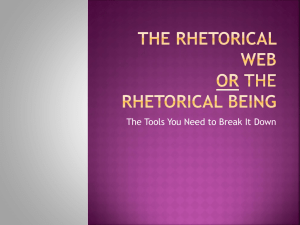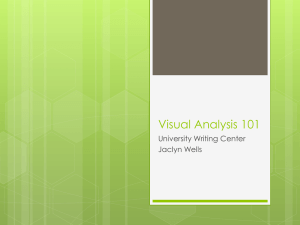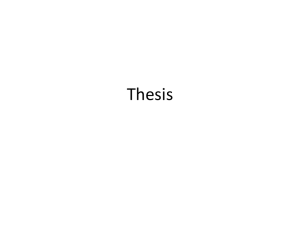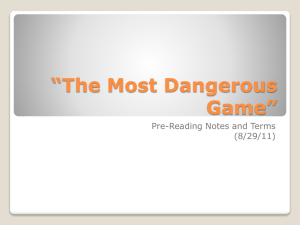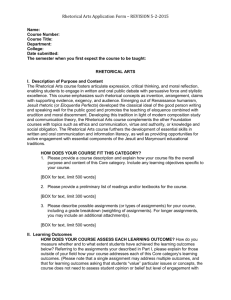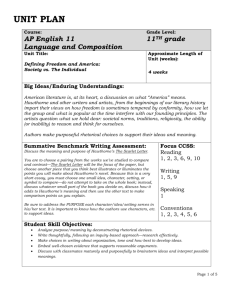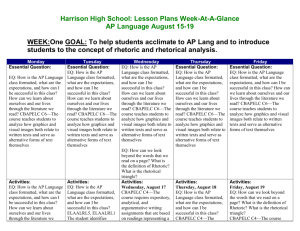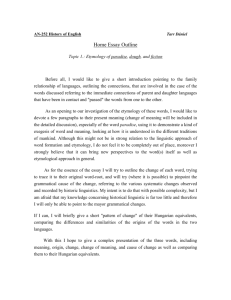Spring Courses 2016
advertisement
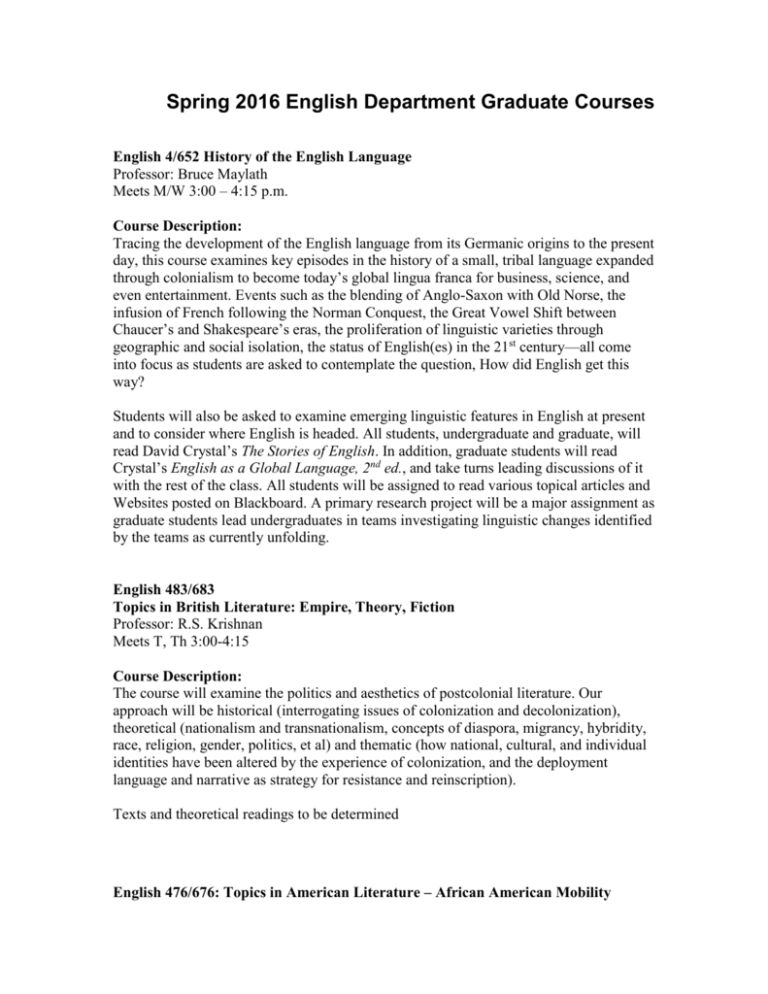
Spring 2016 English Department Graduate Courses English 4/652 History of the English Language Professor: Bruce Maylath Meets M/W 3:00 – 4:15 p.m. Course Description: Tracing the development of the English language from its Germanic origins to the present day, this course examines key episodes in the history of a small, tribal language expanded through colonialism to become today’s global lingua franca for business, science, and even entertainment. Events such as the blending of Anglo-Saxon with Old Norse, the infusion of French following the Norman Conquest, the Great Vowel Shift between Chaucer’s and Shakespeare’s eras, the proliferation of linguistic varieties through geographic and social isolation, the status of English(es) in the 21st century—all come into focus as students are asked to contemplate the question, How did English get this way? Students will also be asked to examine emerging linguistic features in English at present and to consider where English is headed. All students, undergraduate and graduate, will read David Crystal’s The Stories of English. In addition, graduate students will read Crystal’s English as a Global Language, 2nd ed., and take turns leading discussions of it with the rest of the class. All students will be assigned to read various topical articles and Websites posted on Blackboard. A primary research project will be a major assignment as graduate students lead undergraduates in teams investigating linguistic changes identified by the teams as currently unfolding. English 483/683 Topics in British Literature: Empire, Theory, Fiction Professor: R.S. Krishnan Meets T, Th 3:00-4:15 Course Description: The course will examine the politics and aesthetics of postcolonial literature. Our approach will be historical (interrogating issues of colonization and decolonization), theoretical (nationalism and transnationalism, concepts of diaspora, migrancy, hybridity, race, religion, gender, politics, et al) and thematic (how national, cultural, and individual identities have been altered by the experience of colonization, and the deployment language and narrative as strategy for resistance and reinscription). Texts and theoretical readings to be determined English 476/676: Topics in American Literature – African American Mobility Time: MW, 3:00-4:15 pm Instructor: Gary Totten Course Description: This course will examine representations of African American mobility (both physical and cultural) in texts ranging from transatlantic travel writing in the late nineteenth- and early twentieth-century to later twentieth-century fiction. We will explore how Reconstruction, racial uplift, Jim Crow laws, lynching, the New Negro renaissance, and the Civil Rights Movement influence the travel writing and fiction of African Americans during this time period. Authors include Ida B. Wells, Booker T. Washington, W. E. B. Du Bois, Zora Neale Hurston, Langston Hughes, Jessie Redmon Fauset, Nella Larsen, Ralph Ellison, Paule Marshall, Toni Morrison, and others. English 756: Composition Research Professor: Andrew Mara Meets T 5:00-7:30 pm Course Description: In Composition Research we will explore issues that currently matter in composition research (like transfer), practice formulating and revising research questions, undertake hands-on research design, and learn how to situate inquiry into broader field conversations. As a class, we will briefly explore the history of writing research and deepen our understanding of how research is performed as both an individual and collaborative experience. While this course will provide a basic overview of research approaches in composition, there will be an opportunity to understand a range of writing and composition research. Finally, you will design, propose, and develop your own research project over the course of the semester in a studio environment. English 759 – History of Writing Instruction Professor: Lisa Arnold Thursdays 5-7:30pm Course Description: In this course, we will conduct a chronological survey of the history of writing instruction, which is tied to Western rhetorical theory, as it has developed from antiquity through the present. We will read primary sources to chart the development and reception of classical Greek and Roman rhetorics in pedagogy; through these readings, we will deepen and complicate our understanding of what is commonly considered “the” rhetorical tradition in the West. In addition to primary sources, we will read a number of secondary and tertiary sources that complicate and politicize traditional understandings of “the tradition,” and we will connect these to a range of accounts of the contemporary history of writing instruction. By the end of this course, students will be familiar with the foundational texts and theories that have comprised the Western rhetorical tradition and will also be conversant in major scholarly debates surrounding dominant conceptions of the tradition, historical methods of research, and historiographic practices. Further, students will have the opportunity to articulate their own approaches to rhetorical history, making connections between it and their own teaching and research practices. English 762: Critical Theory Instructor: Verena Theile




